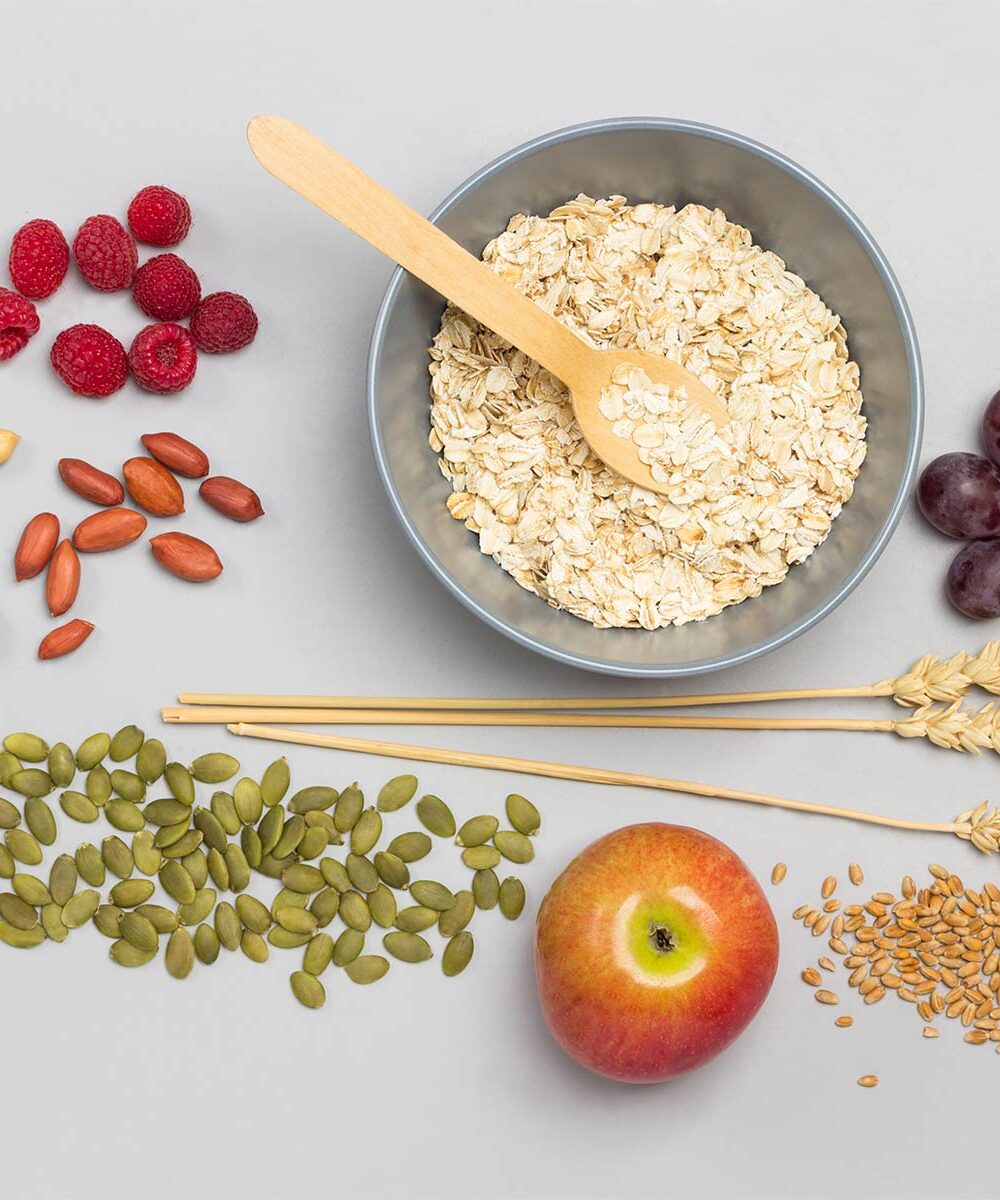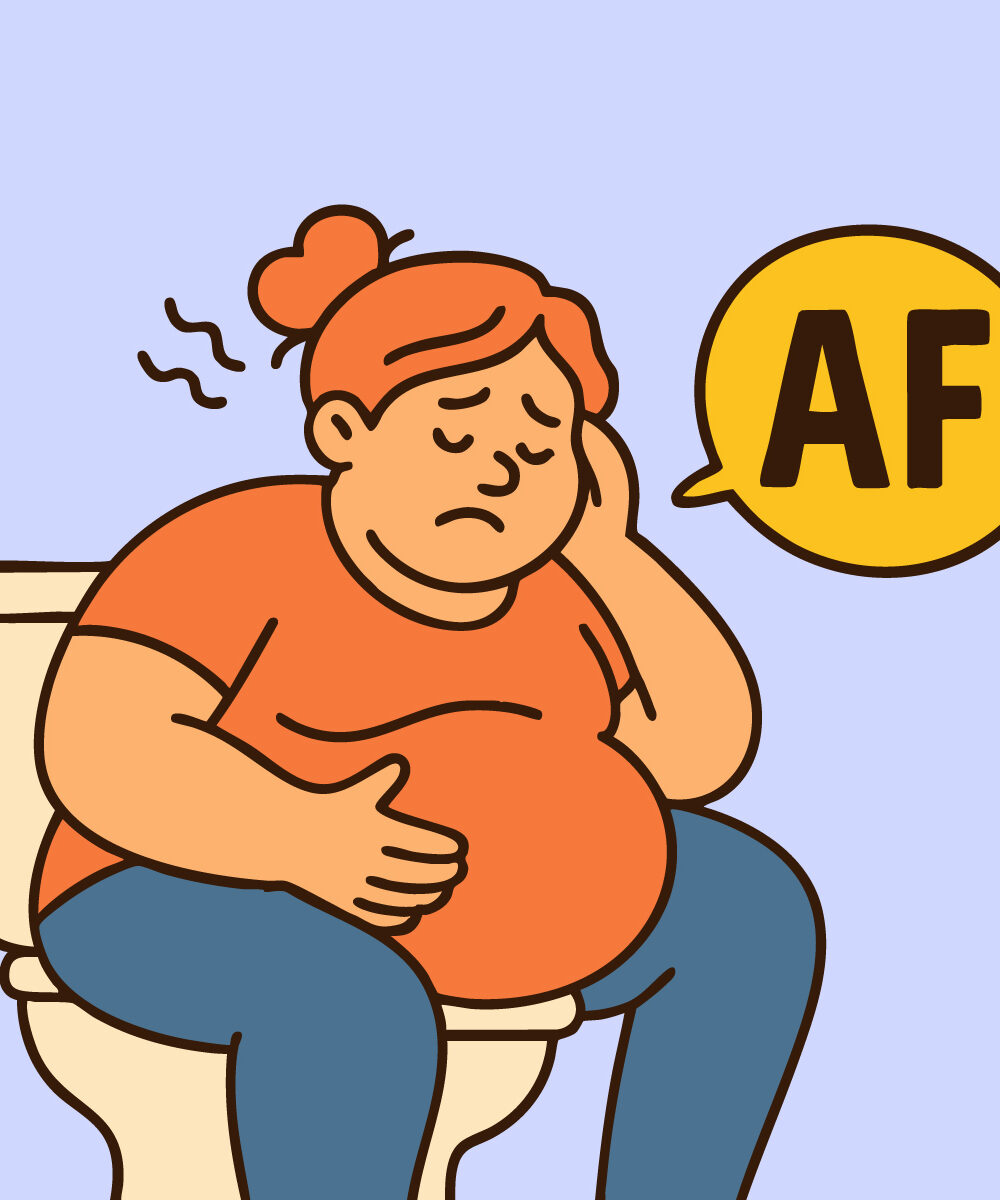🚫 “Just eat more fiber!” If only it were that simple.
If you’ve ever been constipated and turned to fiber hoping for relief, you’re not alone. It’s one of the most common pieces of advice given for constipation. Doctors, nutritionists, even your well-meaning coworker all say the same thing: “You just need more fiber”.

But what if you’ve tried that, and instead of smooth, regular poops, you ended up even more bloated, gassy, and uncomfortable? You’re not imagining it. And your gut isn’t broken. The truth is that fiber doesn’t always work the way we’re told it should.
Let’s break down why that happens, what it reveals about your gut health, and what you can do that actually helps.
💥 The Big Fiber Myth: More Isn’t Always Better
Fiber is often treated like a cure-all. But in reality, it’s just one piece of the puzzle.
Fiber adds bulk to your stool and helps it move through your colon. That only works when your digestion is already functioning fairly well. If you’re dehydrated, inflamed, backed up, or dealing with imbalanced gut bacteria, adding more fiber can make things worse.
Think of it like pushing more food down a clogged kitchen sink. The blockage gets tighter. Pressure builds. Things stop moving.
🧠 What Is Your Gut Trying to Tell You?
If fiber makes your constipation worse instead of better, that’s a clue. It means something deeper might be going on.
Here are a few possibilities:
- You’re not drinking enough water. Fiber needs water to work. Without it, things get hard, dry, and stuck.
- You have low stomach acid or poor bile flow. That means food isn’t being broken down properly from the start.
- Your gut bacteria are out of balance. Too many unhelpful microbes and not enough beneficial ones can lead to fermentation, gas, and discomfort.
- You’re stuck in stress mode. The gut and brain are connected. When you’re anxious or overwhelmed, digestion often slows down.
So if you’ve tried fiber and still can’t poop, it’s not because you’re doing something wrong. You just need to start with a different approach.
✅ What to Try Instead: Build a Gut-Friendly Foundation
Before you reach for the fiber-heavy snacks or smoothies, try this gentle, supportive routine. It helps your body get ready to process fiber effectively and comfortably.
💧 1. Hydrate Like It Matters
Your colon’s main job is to absorb water. Even mild dehydration can make your stool dry, hard, and slow to move. Try drinking 1.5 to 2 liters of water each day. Start your morning with a warm glass to gently wake up your digestive system.
🧂 2. Use Magnesium as Your Secret Weapon
Magnesium helps your muscles relax, including the ones that push poop out. Magnesium citrate is good when you’re backed up and need fast relief. Magnesium glycinate is better for gentle, daily support.
🦠 3. Support Your Gut Microbiome
When your gut bacteria are balanced, digestion runs more smoothly. A prebiotic like Peak BioBoost or a targeted probiotic like Optima can make a big difference. Once your gut flora are in a good place, fiber tends to work much better.
🍓 4. Choose Soluble Fiber First
Raw vegetables or bran can feel like sandpaper in a sensitive gut. Try soluble fiber instead. Psyllium husk, chia seeds, and blended berries are much easier to tolerate. Smoothies work well for many people.
🚶♀️ 5. Get Your Body Moving
Even five to ten minutes of walking or stretching can stimulate your digestive system. Light movement helps your intestines contract in a healthy rhythm that encourages bowel movements.
😌 6. Relax Your Nervous System
Stress can literally freeze your gut. Soothing rituals before bed can help. Sip a calming tea like peppermint or ginger. Use a warm compress on your belly. Breathe deeply for a few minutes. This signals your body that it’s safe to relax and release.
📩 Want Help Without Guesswork?
We put all of this into a one-page printable called the 3-Step Poop Protocol. It’s free, easy to follow, and designed to work even if nothing else has helped. This simple daily rhythm made a huge difference for us, and we hope it helps you too.




0 Comments